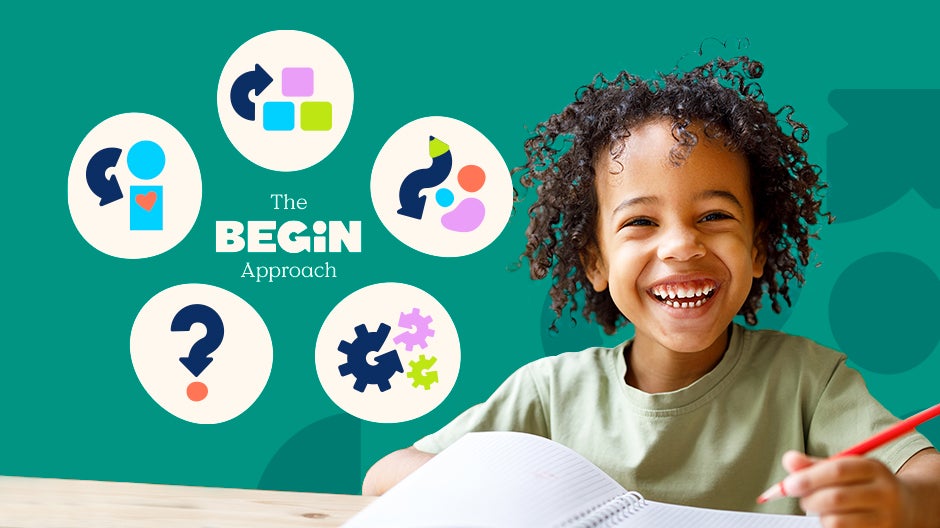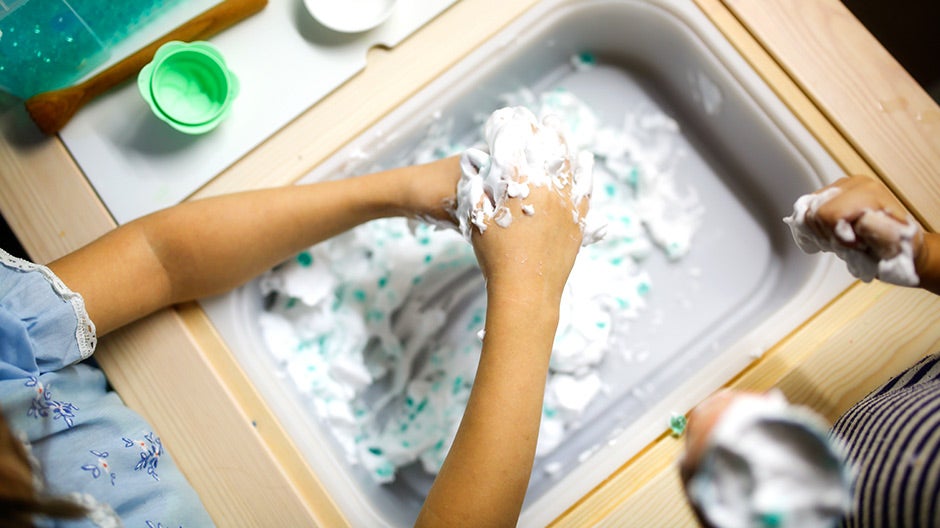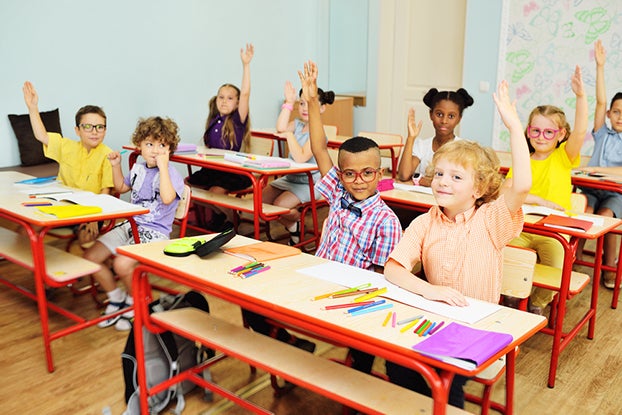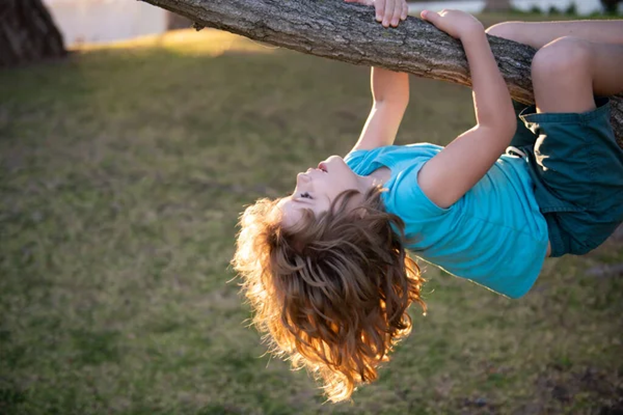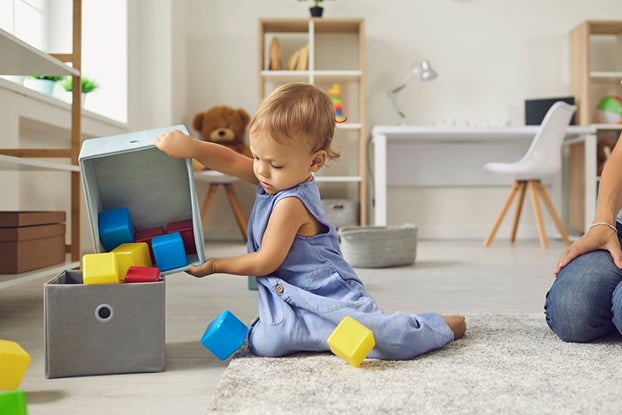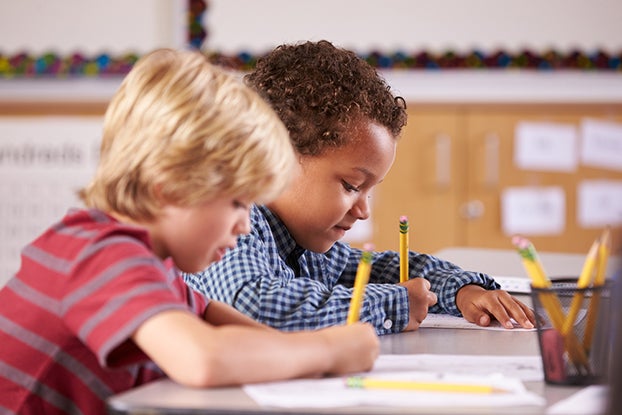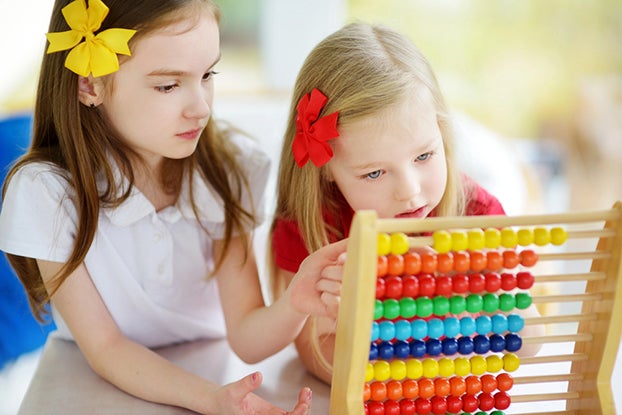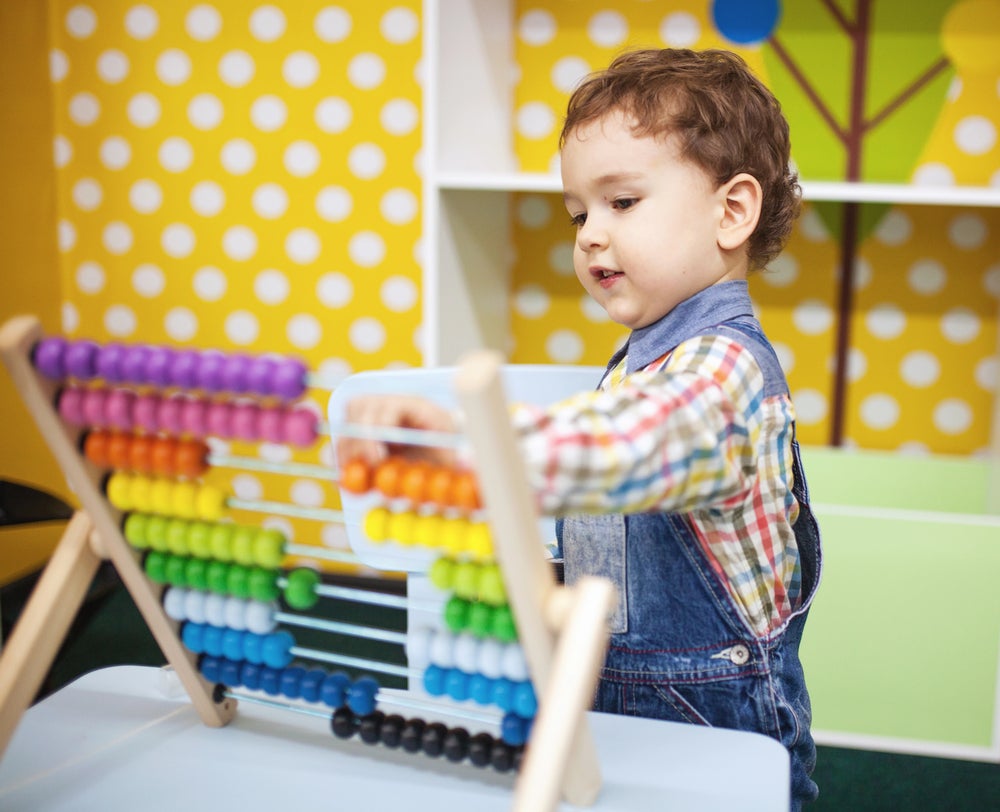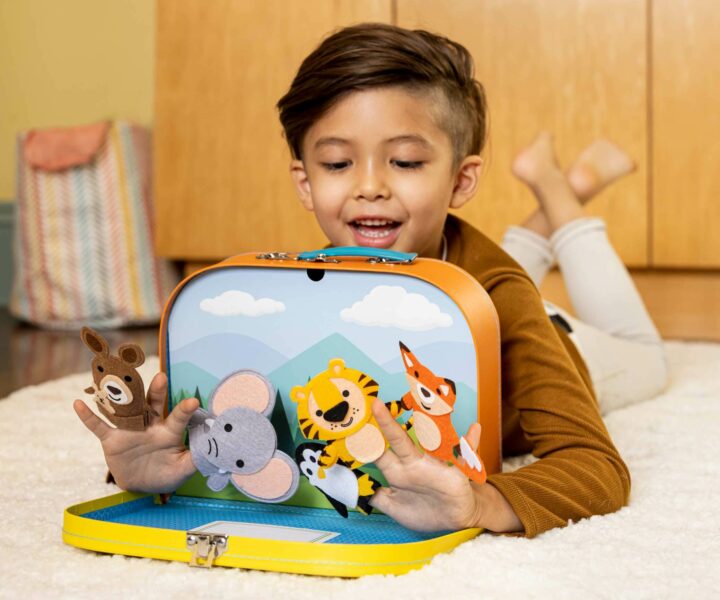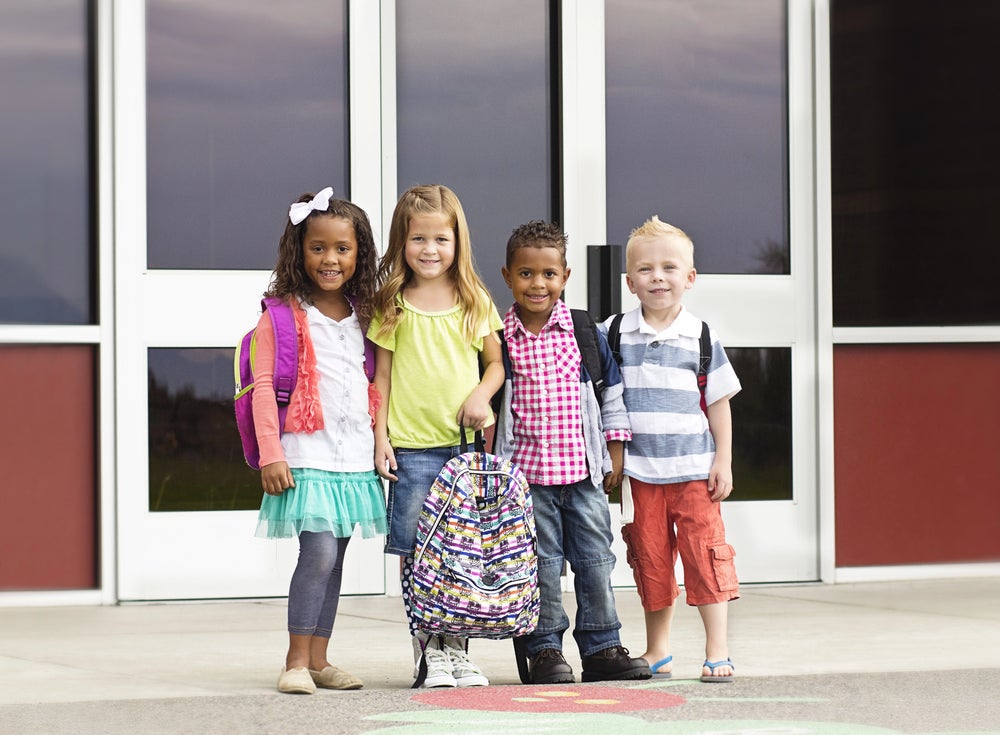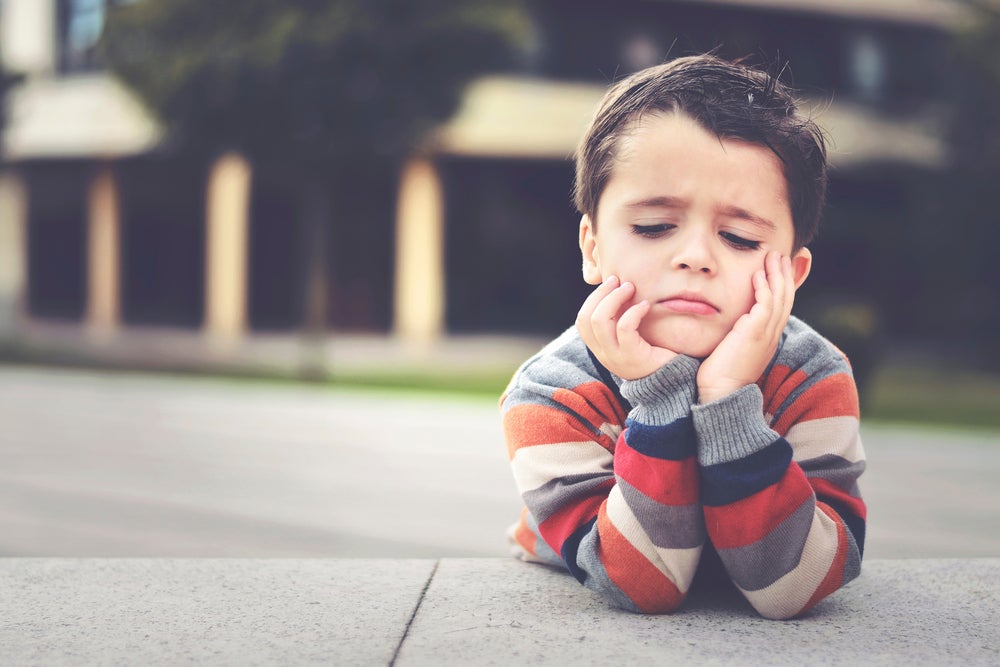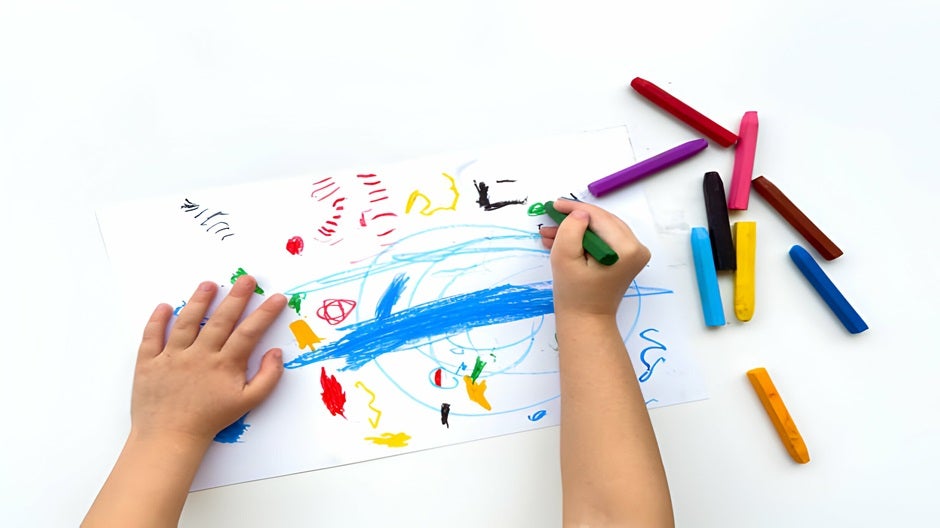5 C’s to Thrive in School and Life
It’s not easy for parents to feel confident about their kids and early learning. Children are struggling with learning loss and plunging test scores in the aftermath of the pandemic. The world is changing fast, with schools scrambling to adapt and social media offering a shifting hurricane of hard-to-grasp advice.
But the science of early learning is clear: helping kids doesn’t have to be so complicated.
The Short Cut
- Kids today need a well-rounded set of skills to face unique challenges, including the rise of artificial intelligence and rapid shifts in how work is done
- Following the latest early learning research, Begin has identified five skill areas that help kids thrive in school and life: Core Skills, Creativity, Critical Thinking, Curiosity, and Character
- Kids encouraged in the 5 C’s are more engaged in school and score better in reading and math
- Begin offers award-winning, play-based learning rooted in the 5 C’s, delivered at the right time and in the right way for every child
Our Begin Approach starts with early learning research and focuses on five essential skill areas that help children succeed throughout their lives. We call these skill areas the 5 C’s.
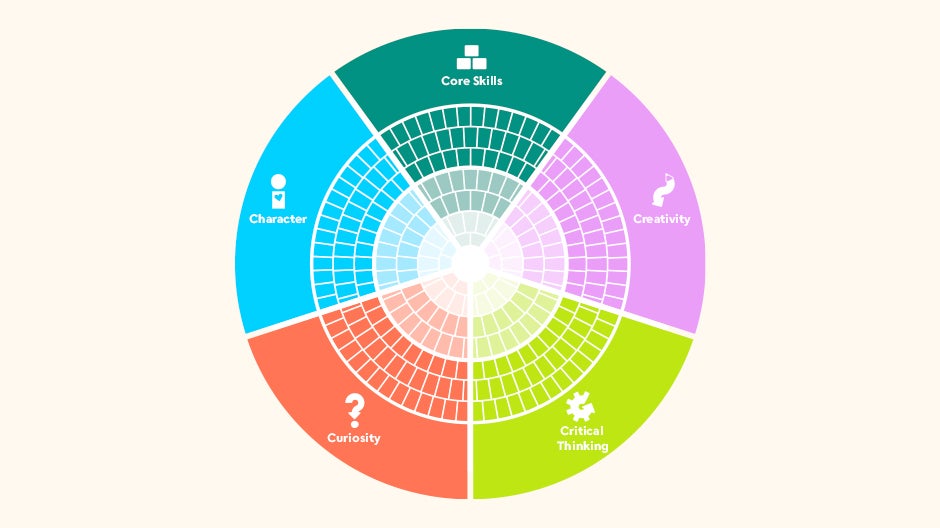
Following the research, we deliver those skills through the power of play, sparking kids’ natural motivation to learn along the way.
And it works. Over 14+ years, our products have helped more than 15 million kids raise their early reading scores, learn coding and math, expand their horizons through hands-on play, and more—all while having fun and developing a lifelong love of learning.
Early Learning Today
The most recent learning research tells us what many parents already know—a traditional curriculum focusing on the ABC’s and 123’s isn’t enough to help kids succeed in the 21st century. Kids are growing up in a world of rapid changes, with experts predicting that as many as 85% of the jobs of 2030 hadn’t been created yet in 2019.
To thrive, kids will require not only traditional academic skills, but also the ability to creatively solve complex problems and be empathetic and kind in the process.
Early learning isn’t just about setting the stage for school and career success, either. Today’s parents want their children to be happy, well-rounded, good people. They want their children to cultivate a holistic skill set to set them up for success in school and in life (even parents of toddlers are spending time thinking about their child’s career!).
These are the outcomes that matter.
The Begin Approach
Inspired by the latest research from leaders like Battelle for Kids and Dr. Kathy Hirsh-Pasek, the Begin Approach focuses on 5 C’s:
- Core Skills – The essentials for school and life, including reading, writing, math, and physical milestones like learning to tie shoes
- Creativity – The messy magic of creative problem-solving, self-expression, and imagination synonymous with early childhood
- Critical Thinking – The use of logic, reasoning, and executive functioning skills to analyze information and make sound decisions throughout life
- Curiosity – The strong and natural motivation to make the unknown known (see also: the sheer number of questions kids ask in a day!)
- Character – The social-emotional skills, like empathy, collaboration and resilience, that shape who kids are and how they interact with the world
Our 5 C’s cultivate the skills kids need in childhood and the future. Compared to other learning frameworks, they put a unique emphasis on Curiosity, which supports the other C’s and guides kids toward a lifelong love of learning.
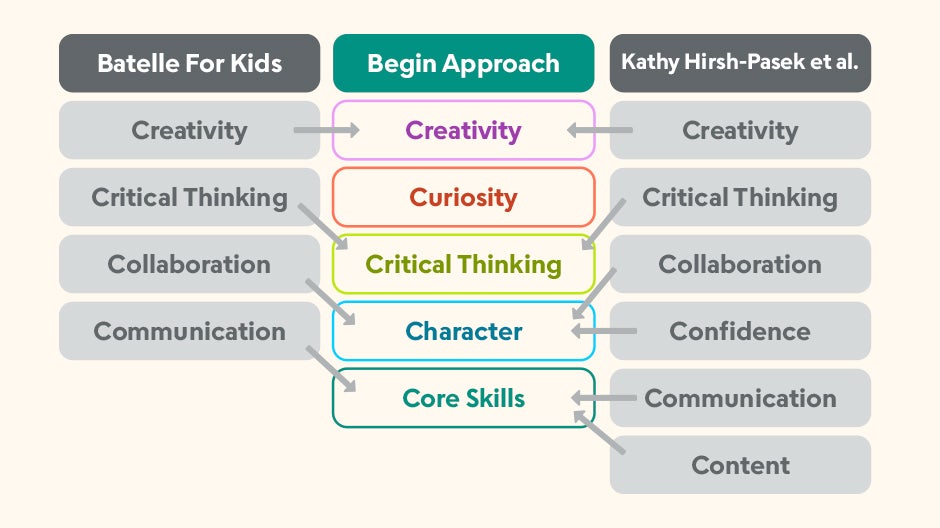
Early studies about the impact of the C’s are promising. Educators report that the C’s help their students be more engaged learners, and students whose classrooms promoted the C’s saw improved test scores in reading and math. We believe that encouraging the C’s at home will lead to similar results.
And it doesn’t have to be complicated. Practicing the 5 C’s can be playing phonics games on an app, investigating feelings with favorite characters from Sesame Street, exploring the world through hands-on play, solving digital puzzles and learning sequencing, or getting some 1-on-1 attention from a tutor.
Most parents understand the need for a balanced approach already. In a survey of more than 3,000 parents and 150 out-of-school organizations, parents reported wanting well-rounded learning experiences that address both academic skills and personal growth areas that allow their children to “flourish.”
The 5 C’s
The 5 C’s are best seen as parts of a whole, each containing many skills. Begin offers experiences that address all the C’s for well-rounded development.
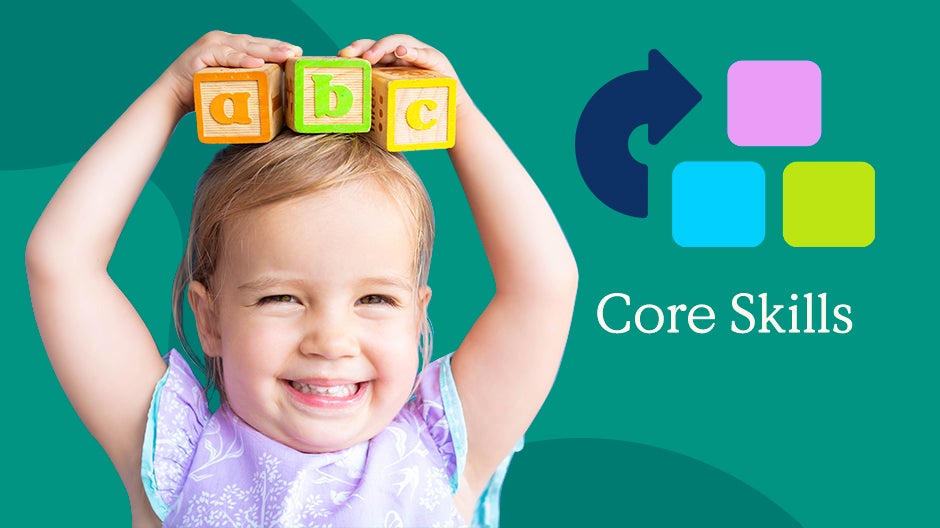
Core Skills are the foundational skills and physical milestones covered in traditional school curriculums and wellness checks. Core Skills are part of the Begin Approach because they will always be essential for helping children thrive.
For young children, Core Skills include:
- Literacy and communication (including following the science of reading and synthetic phonics)
- Math (including numbers, operations, shapes, measurement, spatial reasoning)
- Physical development (such as fine and gross motor skills, sensory skills, healthy development)
- STEM (including but not limited to life science, earth science, technology, and engineering)
- World exploration (such as geography, culture, other languages)
The Begin Approach helps kids build background knowledge, learn how to understand and operate within symbolic systems, understand principles and rules that explain the world, and develop a healthy body and brain with which to operate within the world. These are the fundamental benefits of strong Core Skills, and they’re just as important now as they’ve ever been.
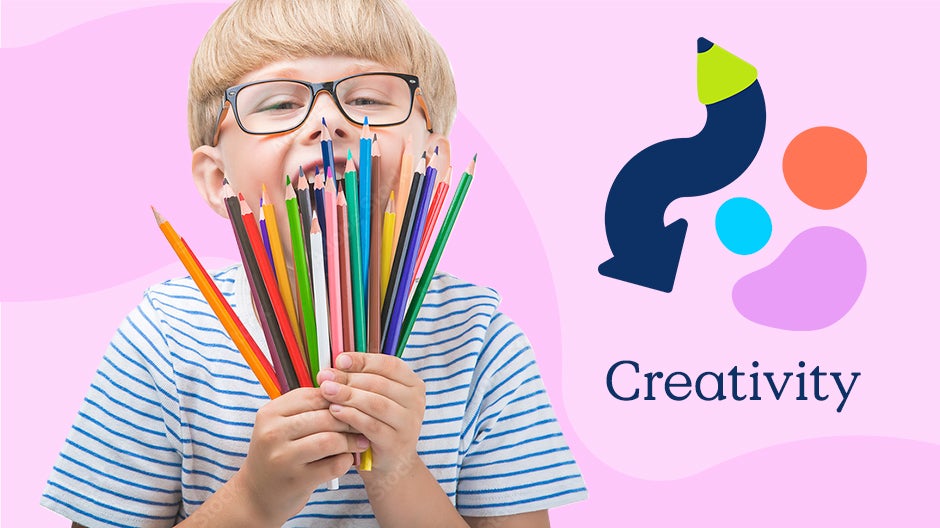
Creativity is the ability to come up with solutions to problems, invent new ideas, and express oneself. For young children, Creativity includes artistic expression and appreciation, creative problem solving, imagination and pretend play, resourcefulness, and making/building/tinkering.
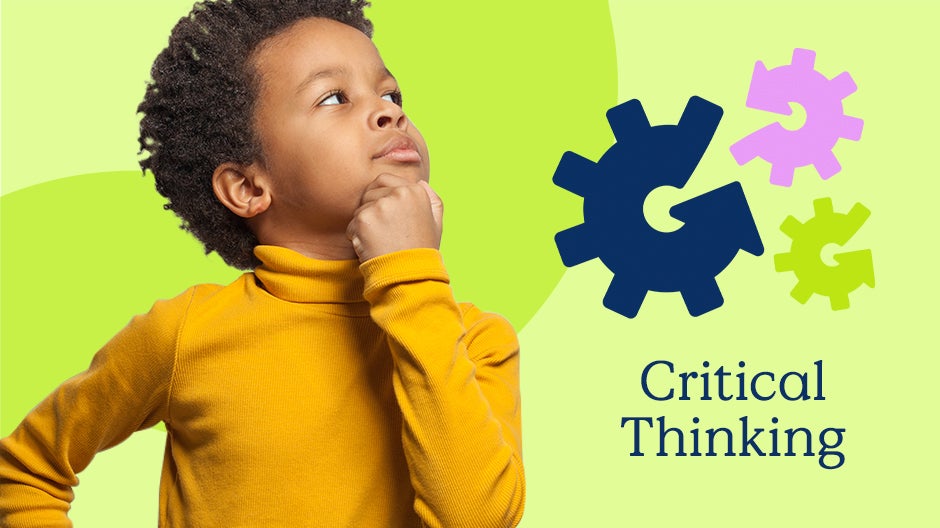
Critical Thinking is the ability to make decisions and analyze information, as well as a broad set of processing skills experts call “executive functions.” Critical Thinking is about how the brain processes information and developing our ability to evaluate and make decisions based on different types of information.
For young children, Critical Thinking includes remembering simple instructions and short sequences of information, focusing on a task and ignoring distractions, computational thinking and coding, understanding differences between sources of information, logic and reasoning, and making connections.
Critical Thinking is one of the most in-demand skills in the workplace. It has also been correlated with fewer negative life events and lower debt in adulthood.
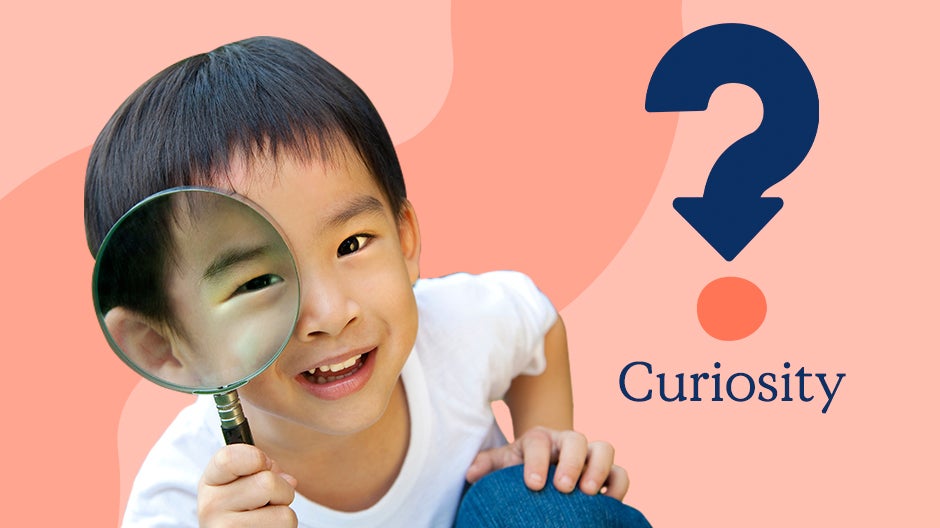
Curiosity is the strong desire to know something. Encouraging Curiosity is about fostering and preserving children’s intrinsic motivation to learn, and to learn through play specifically.
Curiosity isn’t present in other learning frameworks, but it has been linked to happiness in adulthood and a lifelong love of learning. Also, when we learn about something we’re curious about, we remember it better later.
In young children, Curiosity includes sorting and classifying, thinking like a scientist, “what if” exploration, recognizing patterns, and motivation. Curiosity helps children (and adults!) learn efficiently by driving us to focus on things we don’t understand until we do understand them.
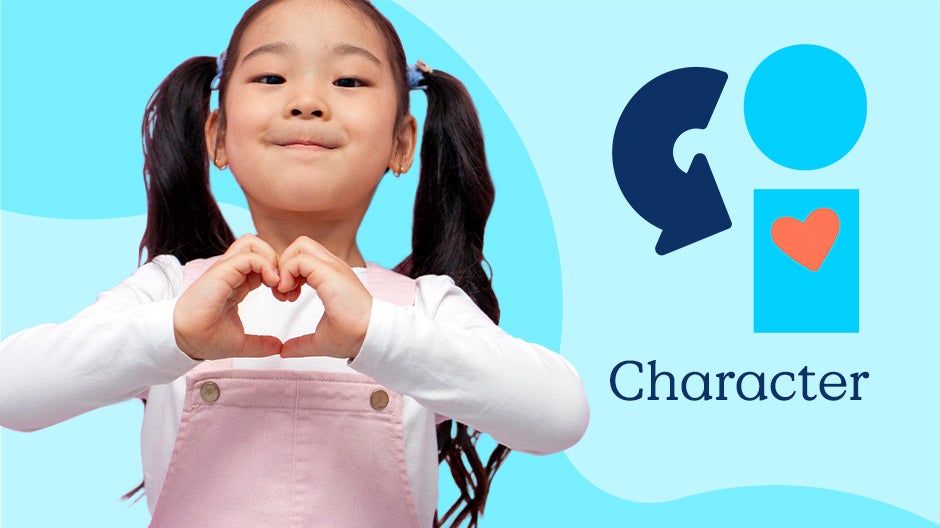
Character refers to a broad range of social-emotional skills. In young children, Character includes naming emotions in themselves and in others, self-regulation of emotions and behaviors, friendship and social skills (including empathy and kindness), collaboration, confidence, perseverance, and self-awareness.
Character is a critically important aspect of the Begin Approach, particularly after the pandemic during which many kids experienced degrees of social isolation and high levels of anxiety at home and in society.
Strong Character skills are associated with more positive attitudes towards school, more prosocial behaviors, fewer conduct problems, and less frequent or severe emotional distress. There is also a strong positive connection between Character and academic achievement. Well-developed Character skills can be a foundation for all other types of learning.
It Begins with Play
With all that learning to do, why approach it through play? Because play is the most effective way for children to learn! Research-backed descriptions of high-quality learning activities and definitions of play overlap almost perfectly:
- Actively engaging (holding a kid’s attention)
- Meaningful (using situations kids understand)
- Socially interactive
- Supportive of experimentation
- Joyful
At Begin, we also take into account the different ways in which children love to play, the experiences parents and children are looking for, and the form factors (digital, hands-on, or guided 1-on-1 support) that support each learning objective.
Some skills are beautifully supported through interactive digital content. Other skills are best experienced using hands-on materials to play and experiment with, or through classes or working 1-on-1 with an experienced tutor. With Begin, families can turn to one source for award-winning, play-based learning across all 5 C’s, suitable for every learner.
Where to Go Next
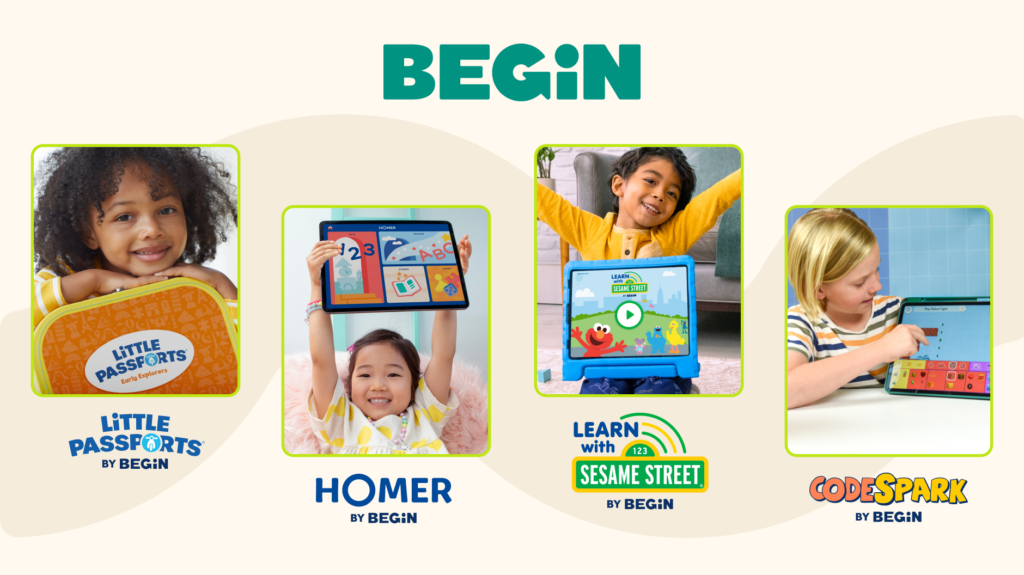
Curious about how to support the 5 C’s in your child? Sign up for our emails to get articles, tips, and activities for helping your child develop the 5 C’s delivered every month! Or check out our age- and stage-matched learning membership and see how our award-winning products come together to help your child thrive.
